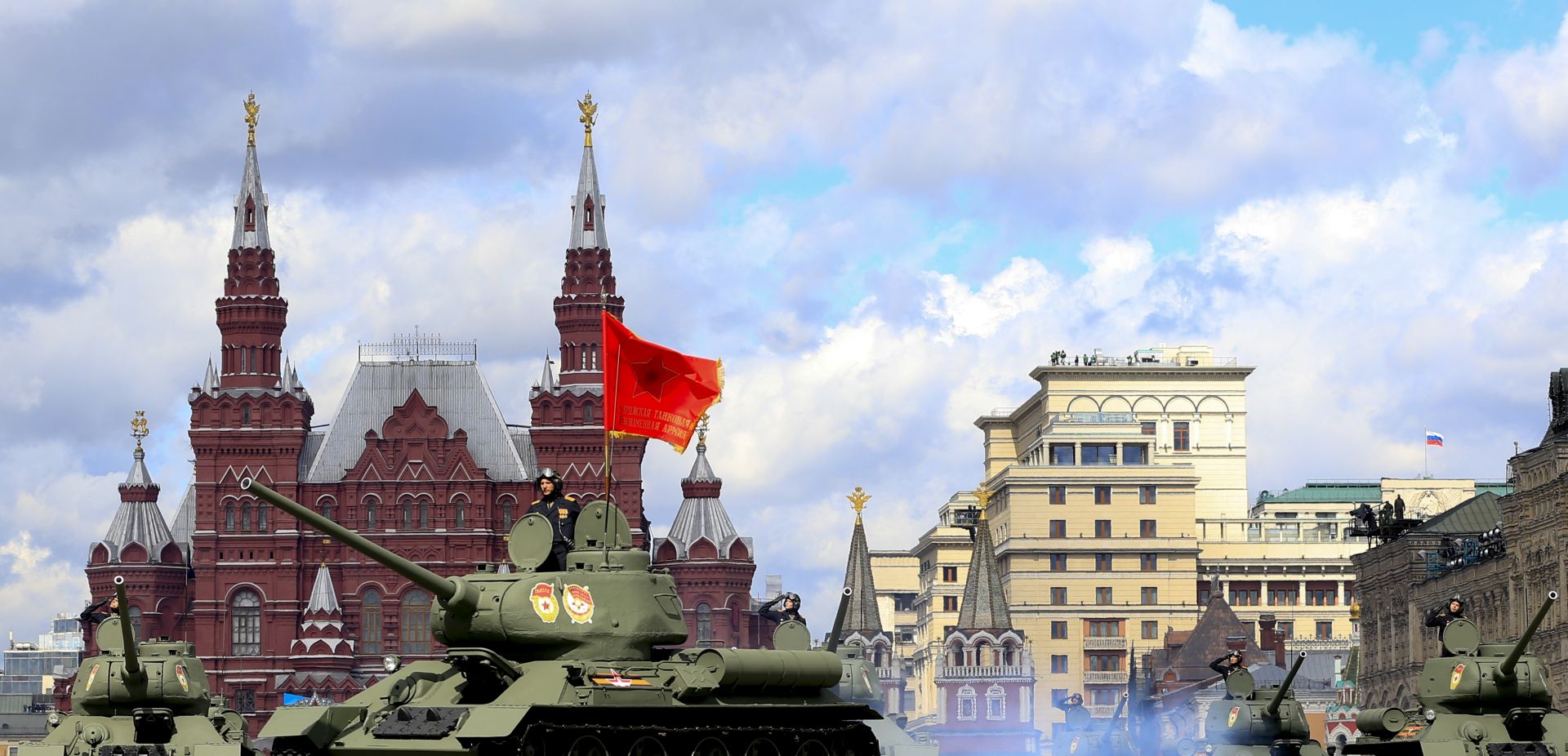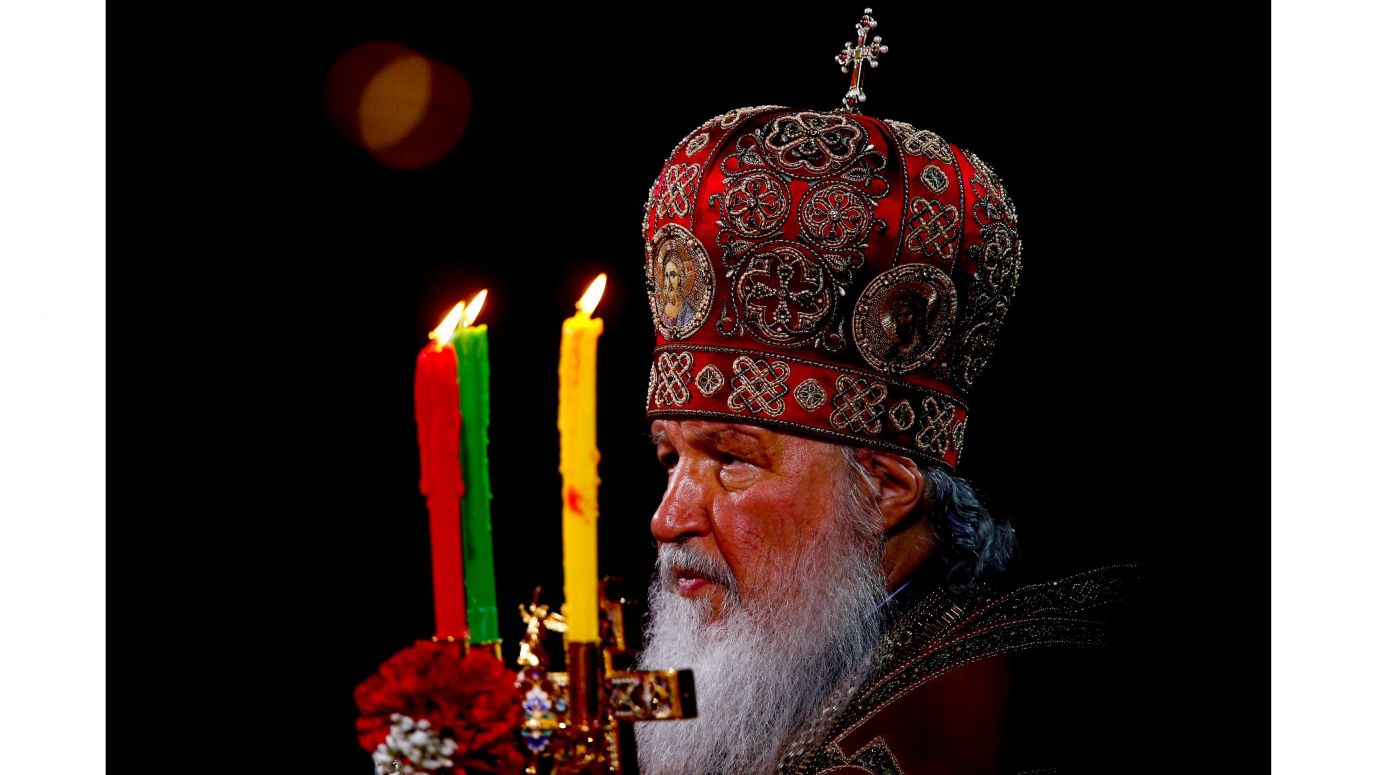Was the world saved by the sacrifice made by the Red Army?
20.04.2022
Vladimir Putin plays the role of a hoodlum who likes to cock a snook at the global policeman, the USA, and its allies.
Despite current opinion, today’s Russia is no longer an Orthodox Christian country. Cyril I, the Patriarch of Moscow can say various things, but ultimately the facts matter. The overwhelming majority of Russians declare themselves to be Orthodox Christians but only a small percentage regularly attend mass.
The moral condition of Russian society points also its current state. The murder and rape committed by Russian solders in Ukraine show the truth behind the moralising utterances of Cyril on subjects such as the LGBT movements.
There is an additional factor at play. If we take divorce or abortion statistics in Russia, we see that they are among the highest on the world. A large proportion of Russians also live within informal relationships.
We could say that the society at large does not treat the teachings of the Orthodox church seriously. The Russian attitude is not just confined to religious questions.
It’s worthwhile reading the online interview on Navalny Live, given by the oppositionist writer Dmitry Bykov a month ago, on the subject of the opposition view of the Kremlin. He said something that would surprise a Polish listener, namely that Russians always had an ironic attitude towards great ideologies and up to a short while ago at least, it was possible to hope that their country could avoid fascism, experienced by many other countries. In Bykov’s opinion, now Russia is revealing its fascist face.
It’s hard agree with the writer at first glance. For many Russian generations from the second half of the twentieth century at any rate, the starting point was the Great Patriotic War. It was after 1945, that this myth originated and was subsequently cultivated in the Soviet Union, at least avoiding being identified with communist ideology. It was a form of “political theology’ that operates in Russian consciousness to this day. In this sense at least, in contrast to Orthodoxy, it orders Russian thinking about the world in general.
This ‘political theology’ interprets the history of the twentieth century in the metaphysical categories of the fight of Good versus Evil. Naturally on the side of Good was the USSR as the vanquisher of Nazism, and on the side of Evil, the Third Reich and its collaborators. When speaking of Ukraine in this sense, we speak of the supporters of Ukrainian nationalist figure of Stepan Bandera.
In Russia, May 9 is celebrated each year as Victory Day. Its culminating point is the great military parade held on Moscow’s Red Square. The idea of resurrection is promulgated by the Orthodox church as the defeat of Nazi Germany and has a messianic dimension in the propaganda pushed by the Kremlin. It’s possible to interpret in this away; yes, humanity was saved by sacrifice but not that of Jesus Christ, but of the Soviet army on the road to Berlin. From the Christian perspective at least, this may appear blasphemous.
In so far as the Russians don’t take Orthodoxy seriously, they treat the myth of the Great Patriotic War without a shred of irony. They celebrate Victory Day rather than Orthodox Easter Sunday. They see themselves as an anti-fascist nation, a community that saved the world.
But Russian society is changing too. As a result of the bankruptcy of socialist realism and the fall of the Soviet Union, society banked on consumerism. Since the promises of communism proved to be empty, any further grand ideological narratives are taken with a large degree of cynical mistrust. Politics is perceived is a field of ruthless competition between interests rather than a place where people realise their noble intentions. In Vladimir Putin they see less a politician attempting to usher in a new ideology , but more an ‘ effective manager ’ simply. Kremlin propaganda refers to Josef Stalin in a similar vein.
A question arises however. Why do Russians support the ‘special operation’ another name for the attack on Ukraine that the Kremlin has defined as having noble aims ‘de-nazification’? The answer may lie in the interview given above by Bykov, in what he called the fascist face of Russia.
According to the writer, fascism is less an ideology but an emotional phenomenon. It derives its characteristic nature from one that draws pleasure in being an evil individual. It’s a shame that Bykov doesn’t develop this theme further. It is an important lead in thinking about the Putin regime though and it’s worth following it up.
In analysing Russian policy under Putin’s presidency we note that the Kremlin has been ignoring international legal norms gradually but with increasing frequency. A marked brutalisation of this has occurred by the invasion of the Russian army in Ukraine. The Russian dictator perfectly plays out the role of a hoodlum, cocking a snook at the global policeman ( the USA) and its allies. From the Russian perspective it’s not important which side is right, in a moral sense. Since politics is a conflict of interests, it’s important to take your own particular side.
The Kremlin chief, as a result, impresses American radical conservatives . The TVP Weekly wrote on this subject in its article ‘Fox News misunderstands Polish fears of Russia. Right-wing American television supports Putin’. Commentators such as Tucker Carlson or Sohrab Ahmari need a hero figure who fights against the liberal elites in the USA. It engenders a contrarianism. If the American liberal establishment, preoccupied as they are with Russian might, states that white is white, they will say that white is black. They will as a result seek some sort of justification for Kremlin policy against Ukraine. Maybe they think that in this way they will occupy the non- politically correct high ground.
But let us return to the subject of fascism. We need to remind ourselves, that at its core, it was a countercultural phenomenon. It was no accident that in interwar Italy, avant-garde artists, such as the futurists figured largely in the movement. They rebelled against bourgeois civilisation and mocked its moral foundations. They regarded being scandal-mongers as being virtuous, breaking all the norms of accepted behaviour.
As criticism of Putin increases in the West, so does the satisfaction of the Russian president. In his eyes, western politicians are just suckers to be duped.
It’s not strange therefore that the enjoys the support of a demoralised society, for which politics is a biological fight for survival. But a large part of society may be unaware of the state of their soul. It’s brainwashed and confused by Kremlin lies that in Ukraine, the Russian Army represents the force of Good, fighting against fascist Evil.
- Filip Memches
- Translated by Jan Darasz






